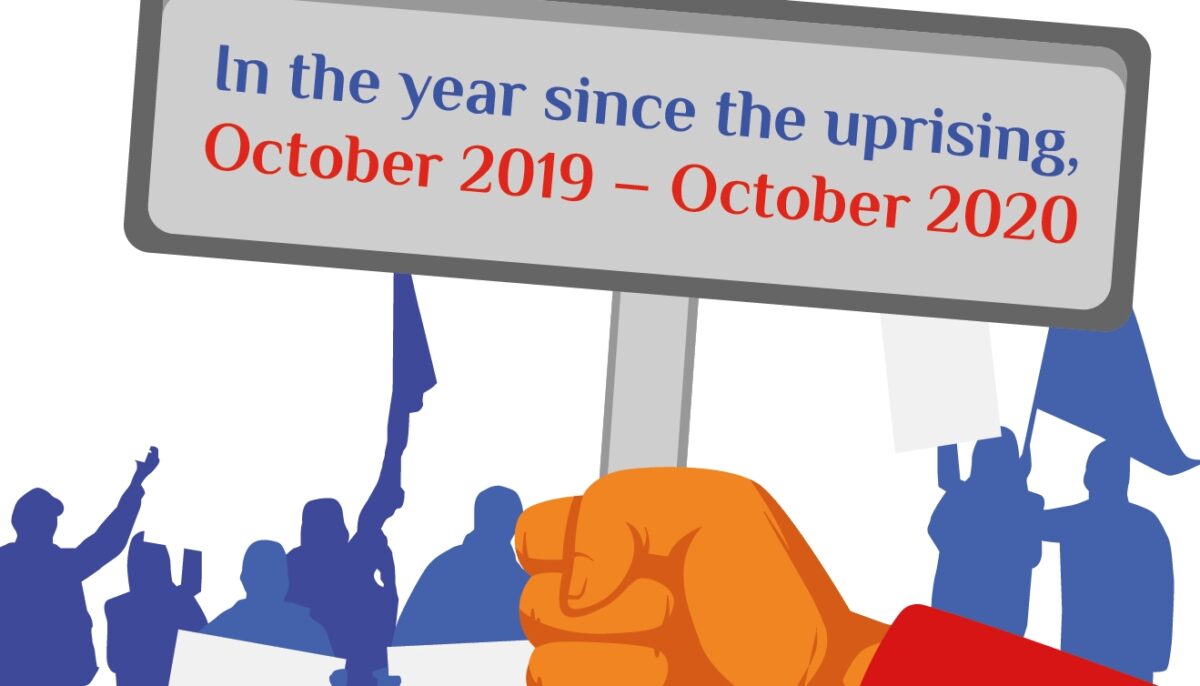One Year Since the October 17 Uprising in Lebanon: Summons and Arrests for Online Speech
It’s been one year since the October 17 uprising in Lebanon, which was ignited over the imposition of a “WhatsApp tax.” During this time, Lebanon witnessed an increase in summons and arrests resulting from online speech with a greater variety in the kinds of charges filed.
In the months following the uprising, Muhal – Observatory for Expression Online reported an increase in the number of people arrested or summoned for investigation as a result of their online speech on social media platforms and websites. However, these numbers were already increasing even prior to the October 17 demonstrations, as reflected by Muhal’s previous statistics in 2018 and 2019.
Political figures and parties filed the highest number of complaints, especially under claims of slander and libel. Charges ranged from defamation to insulting the Lebanese President. In addition, there were a number of new charges against activists who supposedly undermined the financial status of the state. Over the last year, interest in economic and financial matters has increased amidst the economic crisis and the devaluation of the local currency. This increased awareness and knowledgeability around the Lebanese economy and the banking sector has led more people to voice their legitimate concerns and disbelief in such flawed systems.
Complaints and summons were issued against people from various professions, yet most of the accused were journalists and activists expressing their views on different online platforms, including WhatsApp. For example, a minor was summoned due to a picture he posted on his WhatsApp status.
Authorities continued to ask people who were summoned to sign a pledge during the summons period, without a trial or judge’s decision. Notably this year, some people refused to sign the pledge. Such impositions are considered illegal since the authority that summoned them did not have the right to force them into signing any pledges before trial.
In other cases, people were arrested, as indicated by Muhal’s statistics, with the detention period ranging between hours and days. This was seen by jurists and human rights advocates as a criminalization of peaceful speech and was considered legally unjustified.




